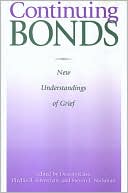Category Books
- Fiction Books & Literature
- Graphic Novels
- Horror
- Mystery & Crime
- Poetry
- Romance Books
- Science Fiction & Fantasy
- Thrillers
- Westerns
- Ages 0-2
- Ages 3-5
- Ages 6-8
- Ages 9-12
- Teens
- Children's Books
- African Americans
- Antiques & Collectibles
- Art, Architecture & Photography
- Bibles & Bible Studies
- Biography
- Business Books
- Christianity
- Computer Books & Technology Books
- Cookbooks, Food & Wine
- Crafts & Hobbies Books
- Education & Teaching
- Engineering
- Entertainment
- Foreign Languages
- Game Books
- Gay & Lesbian
- Health Books, Diet & Fitness Books
- History
- Home & Garden
- Humor Books
- Judaism & Judaica
- Law
- Medical Books
- New Age & Spirituality
- Nonfiction
- Parenting & Family
- Pets
- Philosophy
- Political Books & Current Events Books
- Psychology & Psychotherapy
- Reference
- Religion Books
- Science & Nature
- Self Improvement
- Sex & Relationships
- Social Sciences
- Sports & Adventure
- Study Guides & Test Prep
- Travel
- True Crime
- Weddings
- Women's Studies
Continuing Bonds: New Understandings of Grief » (1st Edition)

Authors: Dennis Klass (Editor), Phyllis R. Silverman, Steven L. (Eds.) Nickman, Steven L. Nickman (Editor), Phyllis R. Silverman
ISBN-13: 9781560323396, ISBN-10: 1560323396
Format: Paperback
Publisher: Taylor & Francis, Inc.
Date Published: January 1996
Edition: 1st Edition
Author Biography: Dennis Klass
Book Synopsis
This new book gives voice to an emerging consensus among bereavement scholars that our understanding of the grief process needs to be expanded. The dominant 20th century model holds that the function of grief and mourning is to cut bonds with the deceased, thereby freeing the survivor to reinvest in new relationships in the present. Pathological grief has been defined in terms of holding on to the deceased. Close examination reveals that this model is based more on the cultural values of modernity than on any substantial data of what people actually do.
Presenting data from several populations, 22 authors - among the most respected in their fields - demonstrate that the health resolution of grief enables one to maintain a continuing bond with the deceased. Despite cultural disapproval and lack of validation by professionals, survivors find places for the dead in their on-going lives and even in their communities. Such bonds are not denial: the deceased can provide resources for enriched functioning in the present.
Chapters examine widows and widowers, bereaved children, parents and siblings, and a population previously excluded from bereavement research: adoptees and their birth parents. Bereavement in Japanese culture is also discussed, as are meanings and implications of this new model of grief. Opening new areas of research and scholarly dialogue, this work provides the basis for significant developments in clinical practice in the field.
Booknews
The accustomed 20th century model of the grief process emphasizes a necessity for the survivor "to let go" in order to establish new relationships. The 22 contributors to this volume assert a different vision: that for many people a healthy resolution of grief enables them to maintain a continuing bond with the deceased in their lives and communities--despite a lack of cultural and professional approval. The scholars discuss our contemporary notions of grief, and analyze the experiences of bereaved widows, children, spouses, siblings, and cultures such as the Japanese to present a unique picture of how people experience loss. Annotation c. Book News, Inc., Portland, OR (booknews.com)
Table of Contents
| Acknowledgments | ||
| Contributors | ||
| Preface | ||
| Ch. 1 | Introduction: What's the Problem? | 3 |
| Ch. 2 | Broken Hearts or Broken Bonds? | 31 |
| Ch. 3 | Grief That Does Not End | 45 |
| Ch. 4 | Grief in an Eastern Culture: Japanese Ancestor Worship | 59 |
| Ch. 5 | Children's Construction of Their Dead Parents | 73 |
| Ch. 6 | Bereaved Children's Changing Relationships with the Deceased | 87 |
| Ch. 7 | Remembering a Parent Who Has Died: A Developmental Perspective | 113 |
| Ch. 8 | Relationship and Heritage: Manifestations of Ongoing Attachment Following Father Death | 125 |
| Ch. 9 | Widowhood and Husband Sanctification | 149 |
| Ch. 10 | Remarriage of Widowed Persons: A Triadic Relationship | 163 |
| Ch. 11 | Memories of the Death and Life of a Spouse: The Role of Images and Sense of Presence in Grief | 179 |
| Ch. 12 | The Deceased Child in the Psychic and Social Worlds of Bereaved Parents During the Resolution of Grief | 199 |
| Ch. 13 | The Wounded Family: Bereaved Parents and the Impact of Adult Child Loss | 217 |
| Ch. 14 | Basic Constructs of a Theory of Adolescent Sibling Bereavement | 235 |
| Ch. 15 | Retroactive Loss in Adopted Persons | 257 |
| Ch. 16 | Grief and the Birth Origin Fantasies of Adopted Women | 273 |
| Ch. 17 | Grief and the Role of the Inner Representation of the Deceased | 297 |
| Ch. 18 | Attachment and the Reactions of Bereaved College Students: A Longitudinal Study | 311 |
| Ch. 19 | Dilemmas in Identification for the Post-Nazi Generation: "My Good Father Was a Bad Man?" | 329 |
| Ch. 20 | Concluding Thoughts | 349 |
| Index | 357 |
Subjects
 Family Issues
Family Issues  Family Tragedies
Family TragediesSelf Improvement
 Emotional Healing
Emotional Healing  Death, Grief & Bereavement
Death, Grief & BereavementSelf Improvement
 See All
See All  Self - Improvement
Self - Improvement
